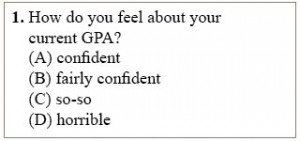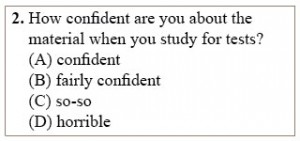South Koreans are cheaters. They’re over competitive opportunists who will risk anything to get into an Ivy. Not only is this an over-generalization, it is racist and downright offensive. Having said this, we should realize that we’re not doing much to help our reputation. Academic dishonesty has reared its ugly head at SIS, as it has in almost every other institution. What’s scary is that some of us have come to accept it and even expect it.
Not surprisingly, some people blur the line of what constitutes cheating based on their own interpretation of academic integrity. If that’s the reason that it happens so often, here’s a quick fix. A Google search of two simple words—“define cheating”— tells us that to cheat means to “act dishonestly or unfairly in order to gain an advantage.” In other words, cheating is the shortcut, the way to get to the end result without actually doing the work. It is providing or weaseling out information about testing material. It is receiving recognition for other people’s ideas without credit, whether they are on the Internet or from someone else’s mouth.
Of course, attempting to eradicate cheating overnight is overly ambitious. But reflecting on past mistakes regarding academic integrity is practical and necessary. Maybe exploring the psychological motivation behind cheating can help explain why it happens and therefore, help individuals consciously resist the temptation in the future. AP Psychology students, pay attention; you might appreciate this.
A notable study released in 1996 by Max Bazerman and David Messick, Northwestern University professors, concluded that cheating occurs after a decision-making process in which we consider three things: what we believe about our environment; what we think about the people who surround us; and what we think about ourselves. Bazerman, now a Harvard professor, revised this initial statement, saying that much of the decision-making actually happens subconsciously. According to him, even the smallest change in our environment, such as dimmer lights that give a sense of illusory anonymity, affects how we make our decisions. Because neither experiment is set in stone, as is the nature of any psychological study, both are reasonable ways to view the cases of cheating here at SIS.
Considering the first study, we can see that social norms affect the decision to cheat. Believing that academic dishonesty is a part of our environment and that the people around us more or less accept it, we do the same. We justify our actions by reasoning that since everyone else does it, I can do it too, so that I’m not at a disadvantage. The question we’ve been asking since we were toddlers comes to mind: “If they can do it, why can’t I?”
The second point in the decision-making process—how we view other people—brings up the topic of friendship. Many relationships are built on the promise of giving and taking, and friendships are no different. Here’s how the tacit logic goes. “If you’re my friend, you would have my best interest at heart and you would help me with the homework or the test.” By alluding to this unspoken obligation, one person successfully plays the guilt card and persuades another to take part in academic dishonesty.
While both environmental and social factors play a role in cheating, we should keep in mind that self-perception does as well. Take a moment to evaluate yourself with this quiz. (Don’t worry, it’s formative).
If you answered D twice, it’s more likely that you would cheat, for obvious reasons: your insecurity about your academic life makes you less able to deflect the tendency to make impulsive decisions. In fact, some cheat just to reassure themselves that they’ve prepared enough for a test.
Don’t get me wrong. It’s definitely not easy to be confident about your academic life when your future seems so unclear. In fact, perhaps the main reason we cheat is that for all we know, every point, or every tenth of a point, matters in determining whether we become the drive-through cashier at McDonald’s or land a spot on Forbes 400. According to Bazerman, when we focus on a numerical end result, we lose sight of the moral implications of certain choices. This “ethical fading” causes us to accept behavior we would normally condone.
Uncertainty of the future is admittedly daunting, but relying on academic dishonesty to grab a few extra points won’t help in the end. Technically, each point does matter because it impacts our final average. However, when considering that 56 different averages are incorporated into our final GPA, it is safe to say that one test or even one subject area is not going to make or break your chances of getting into a certain college or university. Even when reassured that admissions officers view us as more than just numbers, some will look for ways to perform a little bit better than everyone else. But right now, we’re simply trying to quell academic dishonesty, so just reminding ourselves that numbers do not define us is a step in the right direction.
Regardless of the various explanations behind cheating, it is important to keep in mind that our community does not consist of cheaters and non-cheaters, sinners and saints. So many people cheat ever so slightly—perhaps by asking questions about tests or on a couple formative assignments. Surely cheating to the slightest degree isn’t really cheating, right? This is where we’re wrong. Whether the assignment is formative or summative or whether we copied words from the Internet, cheating is cheating. No matter how much we try to rationalize our decisions, it all boils down to this: what’s wrong is wrong.


